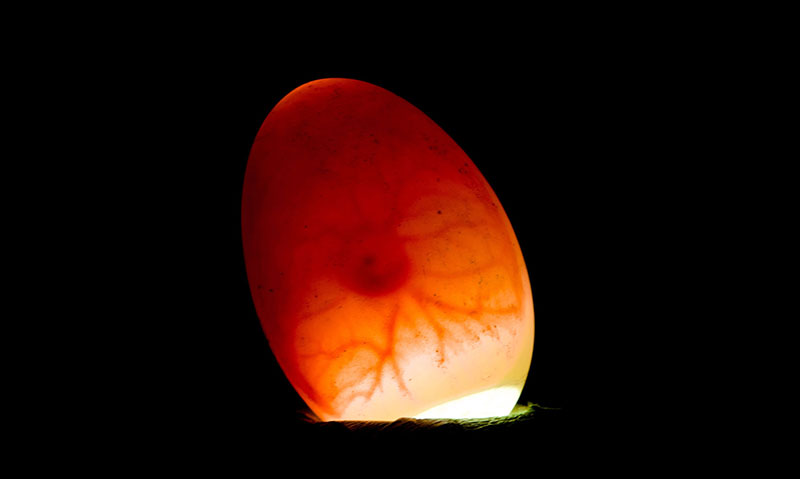
Genetic scientists believe they have found a way of sexing chicks whilst they are still in the egg.
The research work, which has been conducted at a university in Australia, appears to be in its early stages, but the technique the scientists have developed could generate large financial savings for the egg industry and also offer a solution to a looming welfare problem. There are signs of growing resistance to the culling of day-old male chicks, with a ban threatened in Germany. The state of North-Rhine Westphalia has already announced that the practice is to be outlawed, the neighbouring state of Niedersachsen is considering doing the same and it is feared that bans could well spread throughout Germany over a period of time. Whether bans follow in other countries only time will tell, but the industry is looking for ways to avoid the controversial culling.
Geneticists at Charles Sturt University (CSU) in Australia believe they may have a solution. The CSU's School of Animal and Veterinary Sciences and Graham Centre has been working on producing chickens that have been genetically modified with a green fluroescent protein that will allow the sex of the developing embryo to be determined inside the egg. The initial work has, apparently, proved successful and the scientists are now intending to do further research on developing the technique.
"At the moment there's no simple, cost effective way of determining the sex of a chick until it's hatched so day-old male layer chicks are mass culled," said Dr Nigel Urwin, a senior lecturer in Genetics at CSU. "This protein is originally found in jellyfish and glows green under ultraviolet light," said Dr Urwin. "We're trying to put that gene into chickens, specifically into one of the sex chromosomes, so, for example, only the skin of female chicks would glow under that light."
He said that being able to determine the sex of the chick very early in its development would have benefits both for animal welfare and for "the bottom line of the egg industry." He said, "The whole egg industry is automated and ideally for a sex determination method you need something that's very quick, very cheap and can be done on a conveyor belt as you pass eggs into or out of an incubator. It takes 21 days for an egg to hatch and if you can avoid incubating eggs that have male chicks there's potentially big savings for producers."?
The chicks are culled at one day old because they cannot lay eggs and they are not suitable for meat production. At the moment, there is no obvious solution to the problem - something that is causing some concern given the move towards the introduction of culling bans in Germany. Lohmann has been pursuing a different approach to the Australian scientists by working on the development of a dual purpose bird that could be used for both egg and meat production. Developments at CSU offer the hope of an in-egg solution to the problem.
Dr Urwin and PhD student Emmanuel Quansah say they have already demonstrated that the green fluorescent protein is expressed in cells in culture. The next step, they say, is to produce a genetically modified chicken with the gene. Emmanuel Quansah is to continue his work at the Animal Biosciences and Biotechnology Lab of the United Stated Department of Agriculture (USDA) in Maryland USA, taking advantage of what he says are world-leading research facilities.
"The USDA has one of the best poultry research facilities in the world, with expertise in artificial insemination," he said. "I've created DNA constructs with the gene which produces the green fluorescent protein. That will be inserted into sperm collected from a rooster and we'll artificially inseminate the hens. Hopefully some of the chicks will then have the gene in the sex chromosome."
Whilst the successful development of the technique would answer animal welfare complaints about the culling of male chicks, the work could potentially arouse alternative criticism. Dr Urwin said that adoption of the method in industry would depend upon public acceptance of genetically modified chickens.
"In this world nothing's perfect and you've got to weigh up whether you prefer to destroy billions of male day-old chicks or to have a genetically modified line of chicken and be able to tell the sex early in development, thus solving the problem." he said. "I personally would prefer to eat the products of genetically modified chickens."
